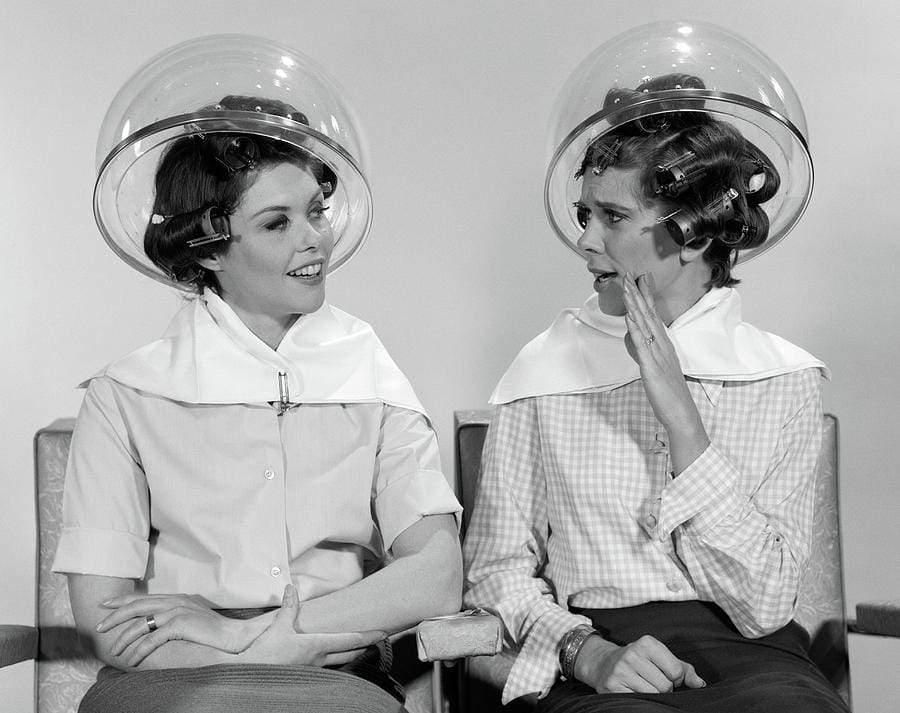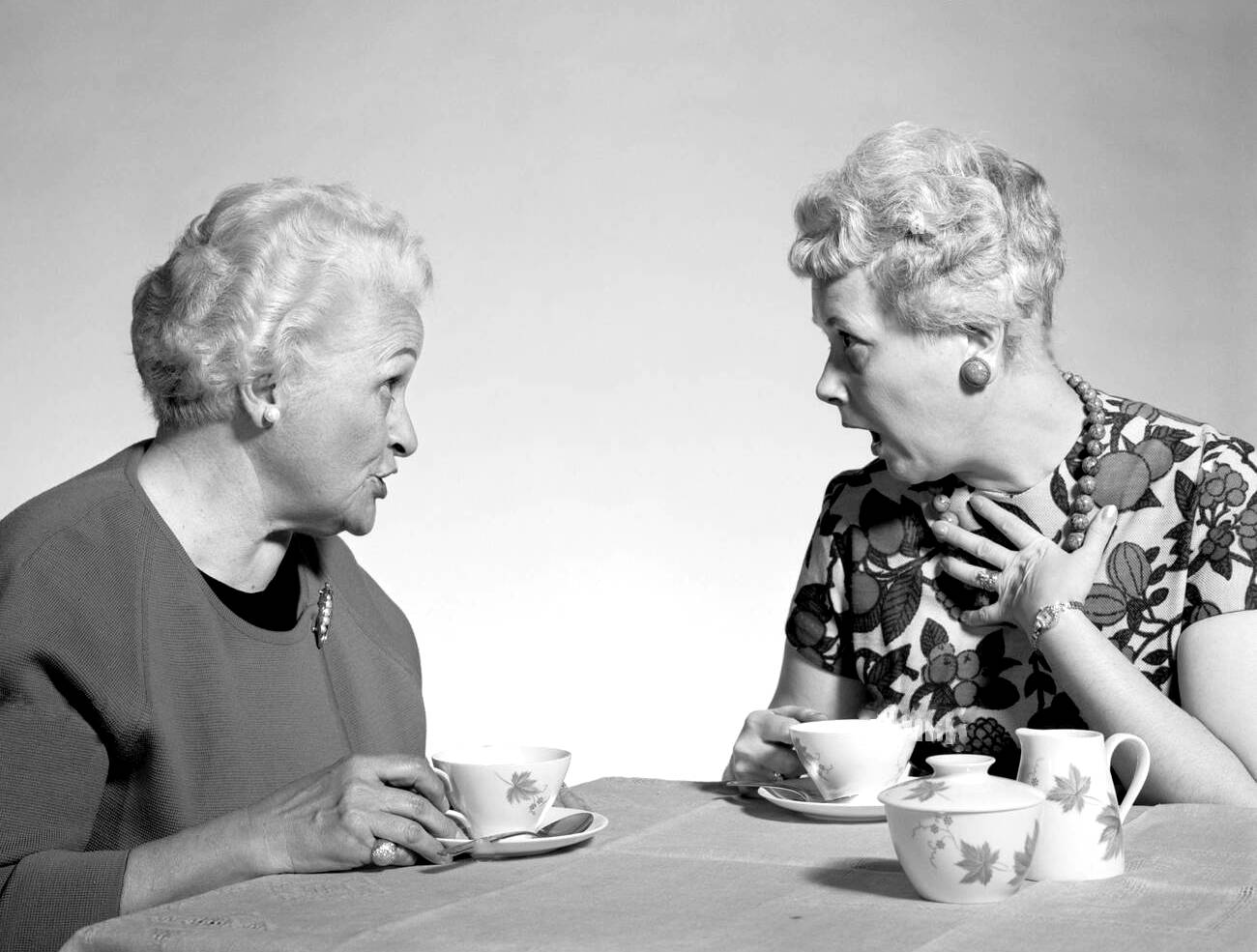There is a belief in society that women are many times more talkative than men. In recent decades, this opinion has seeped into the popular scientific literature on psychology and is perceived by many as an established fact. We checked whether there is scientific evidence for this stereotype.
In many books and articles stereotype about women's talkativeness is supported by supposedly scientifically proven statistics comparing the number of words spoken by women and men per day. Someone mentions 7000 words for women versus 2000 for men. And someone declares, that on average women are able to speak 30,000 words, and men - only 12,000. But perhaps the most common statistic, widely cited on English, Spanish, German, Russian and other languages, it’s 20,000 versus 7,000. According to the plot "Channel One", physiologists explain this by saying that the need to talk a lot, quickly and constantly is inherent in a woman by nature: “Imagine a cave. In the cave there were women and children who constantly had to communicate with each other, while the man, creeping up on his prey, was almost always silent.”
The claim that women use about 20,000 words a day and men about 7,000 gained worldwide popularity after it was published in book "The Female Brain" by Luann Brizendine. Brizendine is a neuropsychiatrist, researcher, clinician, and professor at the University of California, San Francisco (UCSF), who has written several books about the human brain. Typically, authors with such credentials are classified as authoritative sources, and their statements are rarely questioned. But in this case, Brizendine's statistics called disapproval of colleagues due to a link to a source dubious for scientific publication. It was a self-help book from 1997 “The language of conversation: how to use conversation for benefit and pleasure” by Alan Garner and Allan Pease, communication and relationship specialists. Alas, Garner and Pease don't say where they got their 20,000 versus 7,000 word statistic from.

A year later, Allan Pease published another book, in which he gave other numbers: 6000–8000 for women versus 2000–4000 for men. And in an interview with CNN in 2004, Pease attributed women have as many as 20,000 - 24,000 words versus 7,000 - 10,000 words for men. Apparently, Pease took an idea he liked from somewhere and reworked it at his own discretion, arbitrarily replacing numbers from publication to publication, from interview to interview. However, one should not judge Pease with all scientific rigor: his works are usually sold in the category of “self-development books” and do not claim to be scientifically accurate. Pease himself makes no secret of his lack of training in neurology or psychiatry. He positions self-identifying as a “motivational speaker,” “body language expert,” and “relationship consultant.”
Pease was not the first to highlight the difference in the number of words spoken per day by women and men. In a 1994 textbook "Psychological assistance to criminals" its author, California State University criminology professor Ruth Masters, quotes book 1993 evangelist Gary Smalley on family relationships: “There is a huge difference between the number of words a man and a woman say. By the end of the day, the man has spent almost all his words, and the woman is still just warming up. She has thousands of words left to say, and with her husband's word count exhausted, conversations often end in dry question-and-answer sessions.”

An even earlier reference was found in James Dobson's 1987 book "Love for life", which also has religious overtones: “Research shows that girls are endowed with greater linguistic abilities than boys, and this talent accompanies them throughout their lives. Simply put, she talks more than he does. As an adult, she usually expresses her feelings and thoughts much better than her husband, and is often irritated by his reserve. Perhaps God gave her 50,000 words a day, but her husband only 25,000. He comes home from work with 24,975 words spent and just grumbles all evening. He immerses himself in an evening of football while his wife is dying to use up the remaining 25,000 words." This is where problems in relationships come from, according to Dobson. Since Dobson is only making a personal suggestion that "perhaps God gave" certain verbal quotas to women and men, we cannot blame him for not citing the source.
Is there at least some scientific credibility to all these statements? The topic of the speech characteristics of men and women began to be studied at about the same time - at the end of the 20th century. According to analysis In 56 experiments conducted by linguists in 1993, in only two of them women spoke more than men. In the rest, men spoke about the same amount or even more.
Authors of another research (1997) recorded the verbal interactions of 153 men and women over two days. On average, women spoke 8,805 words per day, while men spoke 6,073.

University of Pennsylvania phonetics professor Mark Lieberman, after reading Brizendine’s book “The Female Brain,” was so outraged that he set out to refute the myth. He says the "20,000 versus 7,000 words" statement that appears on the book's cover is "cited in reviews around the world, from the New York Times to the Mumbai Mirror" and is quickly becoming a "factoid". In 2006 he held his own study, in which he analyzed collection of 5,850 telephone conversations lasting up to ten minutes each. Men spoke on average 6% more than women. However, Lieberman noted that his study looked at the behavior of men and women while they were already engaged in a telephone conversation. It did not take into account that, perhaps, after hanging up the phone, men plunged into, for example, silent reading of newspapers, and women went in search of the next interlocutor.

A group of researchers from the USA conducted another study, which lasted from 1998 to 2004. Scientists gave 396 experimental participants an automatic recording device, which they wore for several days. The results showed that women on average spoke 16,215 words per day, and men - 15,669. Scientists found these differences to be statistically insignificant.
Thus, scientific research refutes the claims of Brizendine and all the authors who preceded her that women speak two (three, four) times more than men. Mark Lieberman believes, that the myth arose from a sexist stereotype and found pseudoscientific justification in pop psychology and self-help books: “I think this meme was created by a marriage counselor about 30 years ago as a parable for couples with communication problems, and then other authors picked it up and spread it, changing the numbers to suit their tastes.” By the way, after a flurry of critical articles about Luann Brizendine’s book “The Female Brain” published Lieberman and other scientists in journals Scientific American And Nature, Brizendine admitted her mistake, thanked Mark Lieberman and promised to remove false statistics from future editions of the book so as not to perpetuate the myth.
Misconception
Read on the topic:
- Is it true that men see fewer shades of color than women?
- Nature. Neurosexism: the myth that men and women have different brains.
- Forbes. Asexual mind. How neuroscience has proven that there is no “female” and “male” brain.
- The Guardian. Meet the neuroscientist shattering the myth of the gendered brain.
If you find a spelling or grammatical error, please let us know by highlighting the error text and clicking Ctrl+Enter.






